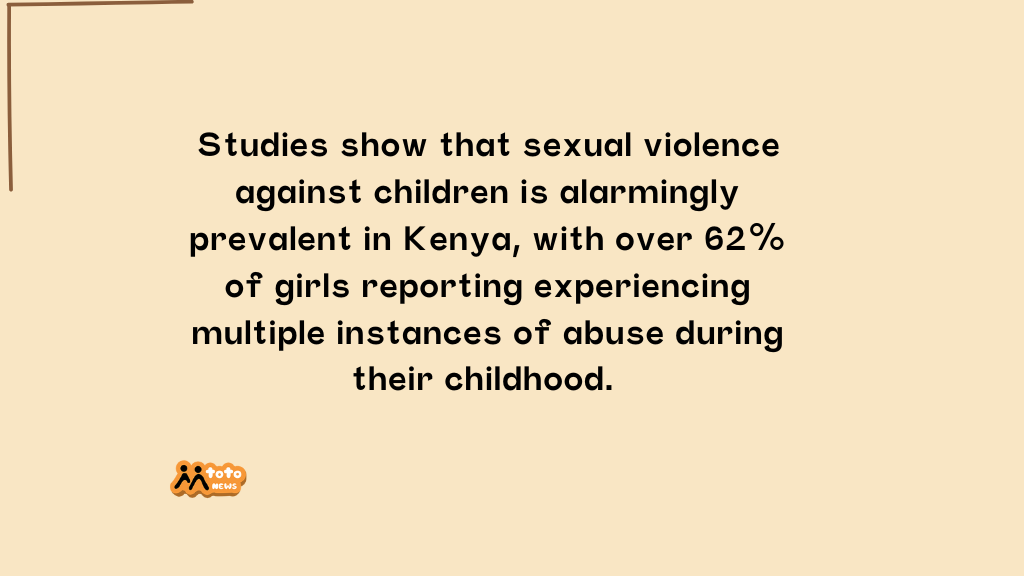
By Shillah Lwangu
The recent case of Michael Valentine, a South African national accused of molesting two children in Malindi is disturbing. It’s a reminder to all of us about the child sexual abuse that looms large in Kenya. While Valentine’s whereabouts are still unknown, authorities are working with Interpol to bring him to justice. The arrest of two women, including a 17-year-old, who allegedly aided him, only adds to the gut-wrenching nature of this situation.
Studies show that sexual violence against children is alarmingly prevalent in Kenya, with over 62% of girls reporting experiencing multiple instances of abuse during their childhood. And that’s just the tip of the iceberg. Many victims remain silent, making the true scale of the problem even more frightening.
Poverty, a lack of awareness about child protection, inadequate law enforcement, and the ever-growing presence of online platforms for exploitation are all contributing to this grim picture. Technology, which should be a tool for good, has unfortunately become a weapon in the hands of predators, making it easier for them to operate under the radar. The COVID-19 pandemic further exacerbated the situation, with children spending more time at home and online, becoming even more vulnerable to exploitation.
Despite laws like the Children’s Act (2022) and national action plans aimed at combating child sexual exploitation, the fight is far from over. The reality is that law enforcement often struggles to handle these sensitive cases effectively, leaving victims and their families reeling in prolonged trauma. This, combined with the stigma surrounding sexual abuse, creates a culture of silence, allowing the cycle of abuse to continue unabated.
Organizations like Trace Kenya and the government are working tirelessly to address this issue, focusing on strengthening legal frameworks, improving child-friendly legal procedures, and providing vital support to survivors. But much more needs to be done. We need to raise awareness among children, especially those living in remote areas or marginalized communities, and empower them to speak out.
This isn’t just a job for the authorities or NGOs. It’s a shared responsibility. Every parent, every teacher, every community member has a role to play in protecting our children. We need to create a safe environment where children feel empowered to report abuse, where they know they will be believed, and where they can receive the help they need.
As the search for Michael Valentine and other perpetrators continues, let’s not forget the bigger picture. Child sexual exploitation is a pervasive issue that demands our collective attention. We must act now, with unwavering determination, to protect our children and build a future where every child can thrive.

Leave a Reply